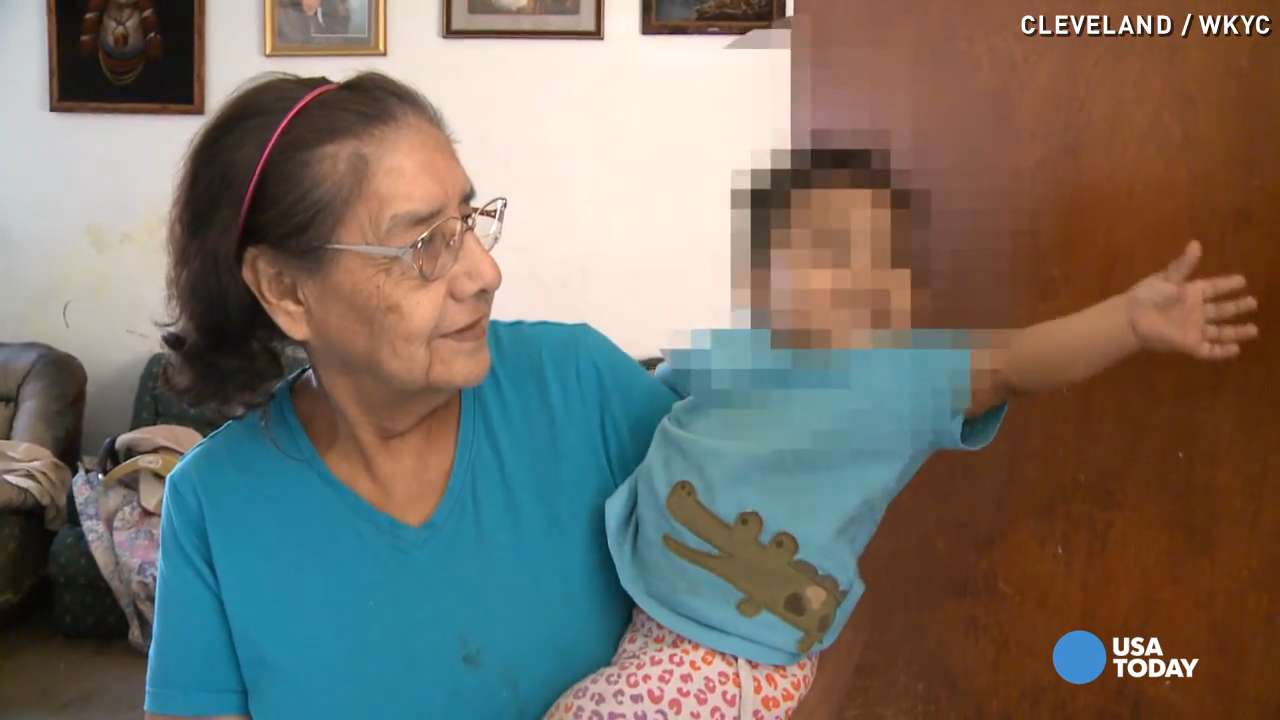When we hear stories that make our jaws drop, this one is definitely on the list. Kimberly Cruz-Feliciano has been accused of something so shocking that it’s hard to believe it even happened. The case of a mom allegedly forcing her daughter to wear a shock collar meant for a dog has gripped the nation. It’s not just about the legal drama; it’s about the deeper questions of parenting, accountability, and what happens when things go horribly wrong.
This isn’t just another tabloid story. It’s a real-life situation that forces us to reflect on the boundaries of discipline and the consequences of crossing them. As we dive into the details, we’ll explore the background of Kimberly Cruz-Feliciano, the allegations against her, and the broader implications of this case. So, buckle up because this is one story that’s not just about shock value—it’s about understanding the human side of it all.
Before we get into the nitty-gritty, let’s be clear: this is not just about pointing fingers. It’s about learning, questioning, and maybe even finding some answers. Whether you’re here for the news, the context, or the deeper dive, we’ve got you covered. Let’s start by breaking down who Kimberly Cruz-Feliciano is and how we got here.
Read also:Sloan From Entourage The Ultimate Guide To The Enigmatic Character
Who is Kimberly Cruz-Feliciano?
To understand the case, we first need to know the person at the center of it all. Kimberly Cruz-Feliciano is a mother whose life took a dramatic turn when allegations surfaced regarding her treatment of her daughter. But who exactly is she? Below, we’ve compiled some key details about her background:
Biographical Information
| Name | Kimberly Cruz-Feliciano |
|---|---|
| Age | 40 years old (at the time of the incident) |
| Residence | Connecticut, USA |
| Occupation | Details not fully disclosed, but reportedly involved in community work |
| Family | Married with children |
While her public profile isn’t extensive, the allegations against her have thrust her into the spotlight. Let’s explore what led to this point.
The Shocking Allegation: Daughter Forced to Wear Dog Shock Collar
Now, let’s get to the heart of the matter. The accusation that Kimberly Cruz-Feliciano forced her daughter to wear a shock collar intended for a dog has sent shockwaves through communities nationwide. But what exactly happened, and why did it escalate to this level?
According to reports, the device in question was originally used to train a deceased family dog. Instead of disposing of it, Cruz-Feliciano allegedly repurposed it as a disciplinary tool for her child. The severity of the allegations lies not just in the act itself but in the psychological and physical implications for the child involved.
Authorities became involved after concerns were raised by individuals close to the family. The case quickly gained traction, sparking debates about parenting practices and child welfare. Let’s break down the key points:
- Repurposed Device: A collar originally designed for animal training was allegedly used on a human child.
- Legal Implications: Using such devices on children is illegal and considered a form of abuse.
- Community Reaction: Locals and experts alike have condemned the act, calling it both cruel and dangerous.
Understanding the Context: Parenting and Punishment
Parenting styles vary greatly across cultures and households, but where do we draw the line? The case of Kimberly Cruz-Feliciano raises important questions about the boundaries of discipline and the potential for abuse. While many parents use timeouts, grounding, or even mild forms of punishment, the use of a shock collar crosses into dangerous territory.
Read also:Storm Reid Family A Deep Dive Into The Rising Stars Family Life
Experts in child psychology emphasize the importance of positive reinforcement over punitive measures. Studies show that extreme forms of punishment can lead to long-term emotional and psychological damage. For instance:
- Research from the American Psychological Association suggests that physical punishment can increase aggression in children.
- Children who experience harsh discipline may struggle with self-esteem and social relationships later in life.
In the context of Kimberly Cruz-Feliciano’s alleged actions, it’s crucial to examine whether this was an isolated incident or part of a broader pattern of behavior. Understanding the motivations behind such actions can help prevent similar cases in the future.
Legal Ramifications and Child Welfare
When allegations of child abuse surface, the legal system steps in to ensure accountability and protect the victim. In the case of Kimberly Cruz-Feliciano, the charges are serious, and the consequences could be life-altering. Let’s take a closer look at the legal aspects:
Charges and Proceedings
Cruz-Feliciano faces multiple charges, including child abuse and neglect. These charges carry significant penalties, including imprisonment and loss of custody. The court will consider several factors, such as:
- The intent behind the alleged actions.
- The impact on the child’s well-being.
- Any prior history of similar behavior.
Beyond the legal implications, the case highlights the importance of child welfare systems. Agencies like Child Protective Services (CPS) play a critical role in investigating and addressing cases of suspected abuse. Their involvement ensures that vulnerable children receive the support and protection they need.
Public Reaction and Media Coverage
As with any high-profile case, the public reaction has been swift and intense. Social media platforms buzz with opinions, ranging from outrage to skepticism. Some question the credibility of the allegations, while others express disbelief at the severity of the alleged actions.
The media has played a significant role in shaping the narrative. Headlines like “Mom Accused of Making Daughter Wear Dead Dog’s Shock Collar” grab attention, but they also risk oversimplifying complex issues. It’s essential to approach such stories with nuance, considering both sides of the argument before forming judgments.
Expert Insights: What the Professionals Say
To gain a deeper understanding of the case, we turned to experts in child welfare and psychology. Their insights provide valuable context and highlight the broader implications of such incidents.
Child Psychologist’s Perspective
Dr. Emily Thompson, a licensed child psychologist, weighed in on the psychological effects of extreme punishment. “Using a shock collar on a child is not just physically harmful; it can also lead to severe emotional trauma. Children need safe, supportive environments to thrive, and this case is a stark reminder of what happens when those boundaries are violated.”
Social Worker’s Perspective
Social worker John Rodriguez added, “Cases like this underscore the need for better education and resources for parents. Many times, parents resort to extreme measures out of frustration or lack of knowledge. By providing support and guidance, we can help prevent these situations from escalating.”
The Broader Implications: Beyond the Headlines
While the focus remains on Kimberly Cruz-Feliciano and her alleged actions, the case also sheds light on larger societal issues. How do we address the root causes of child abuse? What role do communities play in preventing such incidents? These are questions that demand our attention.
One potential solution lies in strengthening support systems for families. Programs that offer parenting classes, counseling, and financial assistance can make a significant difference. Additionally, raising awareness about the signs of abuse empowers individuals to take action when they suspect something is wrong.
Lessons Learned: Moving Forward
Every story, no matter how shocking, offers an opportunity to learn and grow. The case of Kimberly Cruz-Feliciano serves as a reminder of the importance of accountability, empathy, and understanding. As we move forward, let’s focus on:
- Supporting families in need.
- Promoting healthy parenting practices.
- Encouraging open conversations about child welfare.
By doing so, we can create a safer, more compassionate world for everyone involved.
Conclusion: A Call to Action
In conclusion, the case of Kimberly Cruz-Feliciano is more than just a headline-grabbing story. It’s a wake-up call that forces us to confront uncomfortable truths about parenting, abuse, and accountability. While the legal process unfolds, we must remain vigilant in our efforts to protect vulnerable children and support struggling families.
We invite you to join the conversation. Share your thoughts in the comments below, and don’t forget to explore other articles on our site. Together, we can make a difference—one story at a time.
Table of Contents
- Who is Kimberly Cruz-Feliciano?
- The Shocking Allegation: Daughter Forced to Wear Dog Shock Collar
- Understanding the Context: Parenting and Punishment
- Legal Ramifications and Child Welfare
- Public Reaction and Media Coverage
- Expert Insights: What the Professionals Say
- The Broader Implications: Beyond the Headlines
- Lessons Learned: Moving Forward
- Conclusion: A Call to Action


:max_bytes(150000):strip_icc():focal(876x1276:878x1278)/Mom-Accused-Dog-Shock-Collar-032225-86ae12f5793c45f6bcec9a5a216d879f.jpg)